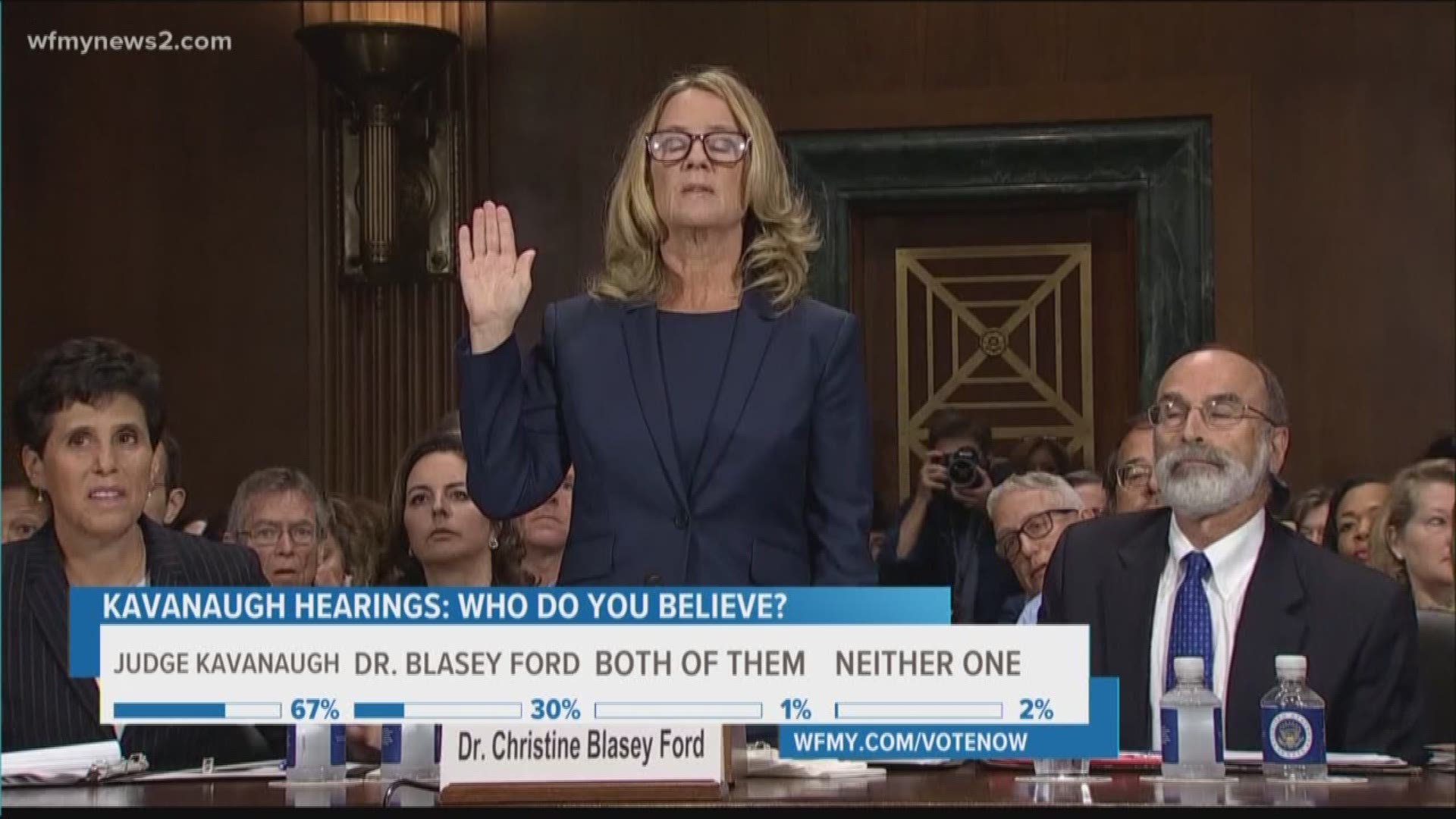GREENSBORO, N.C. -- The Kavanaugh-Ford hearing has taken the internet and nation by storm.
Dr. Christine Blasey Ford stated she didn't remember as much as she would like to, but vividly remembers the alleged assault. Dr. Ford says she is "one hundred percent” certain that Supreme Court nominee Brett Kavanaugh is the person who sexually assaulted her when they were teenagers. Kavanaugh vehemently denies those claims, saying "I am innocent of this charge."
WFMY News 2 turned to a UNC Greensboro psychologist for answers on the science behind memories, especially as time passes, and PTSD. Dr. Blasey Ford stated she has "PTSD-like symptoms."
"Sexual assault and combat are two of the forms of trauma that have the highest conditional probabilities of PTSD," UNCG Clinical Psychologist Blair Wisco said.
Wisco noted it is common for painful memories to be stronger than other memories.
"A lot of people who have been through a trauma, it's something they remember quite vividly and this experience of remembering the central features of the trauma, the actual assault, but not remembering the peripheral details is a very common pattern in trauma survivors," Wisco said.
"You might remember the details of what happened when you were terrified but not remember the things like the date which it happened or specific address because those memories were not seared into your memory."
WFMY News 2's body language expert, Blanca Cobb, believes both of their testimonies were credible.
“I found them both to be credible I don’t know who to believe," Cobb said. "The interesting thing about this is when you believe what you’re saying, you’re going to find a lot of consistency in your body language and in your words.”

